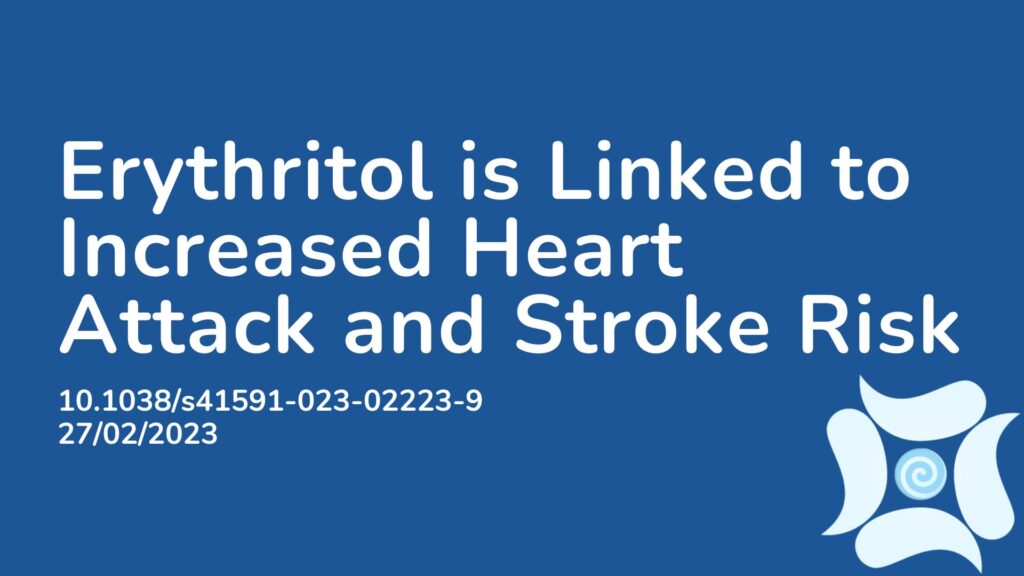Summary:
Artificial sweeteners are often used instead of sugar, however their long-term health effects are largely unknown. This study looked at erythritol, a common artificial sweetener used as a sugar substitute, and its impact on heart disease and stroke risk. The authors found that higher levels of erythritol in the blood were linked to a higher risk of major heart problems (like heart attacks or strokes) over three years in a group of 1,157 patients. These results were then confirmed in two other groups of patients in the US (2,149 people) and Europe (833 people). People with the highest erythritol levels had a significantly higher risk of major heart problems compared to those with the lowest levels. The authors also found that erythritol can increase how easily blood clots form in both laboratory and in animal studies. In a small study with healthy volunteers (8 people), consuming erythritol led to high levels in the blood for over two days, which matched the levels linked to increased blood clotting in the laboratory and animal tests. The paper therefore concluded that erythritol may increase the risk of heart problems and blood clots.
Abstract:
Artificial sweeteners are widely used sugar substitutes, but little is known about their long-term effects on cardiometabolic disease risks. Here we examined the commonly used sugar substitute erythritol and atherothrombotic disease risk. In initial untargeted metabolomics studies in patients undergoing cardiac risk assessment (n = 1,157; discovery cohort, NCT00590200), circulating levels of multiple polyol sweeteners, especially erythritol, were associated with incident (3 year) risk for major adverse cardiovascular events (MACE; includes death or nonfatal myocardial infarction or stroke). Subsequent targeted metabolomics analyses in independent US (n = 2,149, NCT00590200) and European (n = 833, DRKS00020915) validation cohorts of stable patients undergoing elective cardiac evaluation confirmed this association (fourth versus first quartile adjusted hazard ratio (95% confidence interval), 1.80 (1.18–2.77) and 2.21 (1.20–4.07), respectively). At physiological levels, erythritol enhanced platelet reactivity in vitro and thrombosis formation in vivo. Finally, in a prospective pilot intervention study (NCT04731363), erythritol ingestion in healthy volunteers (n = 8) induced marked and sustained (>2 d) increases in plasma erythritol levels well above thresholds associated with heightened platelet reactivity and thrombosis potential in in vitro and in vivo studies. Our findings reveal that erythritol is both associated with incident MACE risk and fosters enhanced thrombosis. Studies assessing the long-term safety of erythritol are warranted.
Article Publication Date: 27/02/2023
DOI: 10.1038/s41591-023-02223-9



